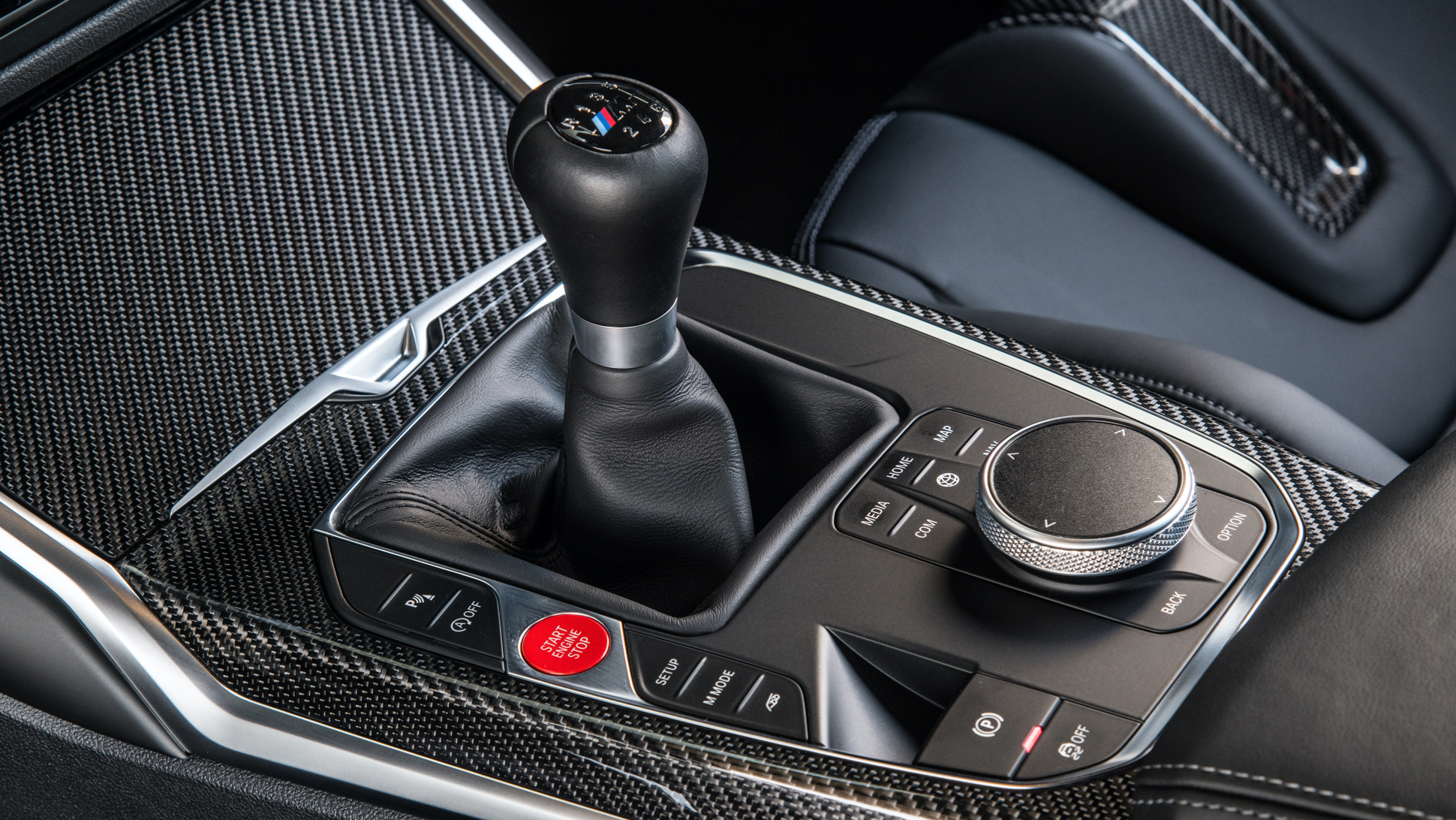

The money shift is every manual transmission fan’s worst nightmare. Say you meant to downshift to fifth, but you grab third, causing the engine to rev too fast and break a lot of expensive components in the process—hence the term “money shift.” Fortunately, BMW hopes to make the money shift a thing of the past, according to patent documents found by CarBuzz. Its new transmission design includes a system of lock-outs for inadvisable gears that should keep even the most ham-fisted manual enthusiasts from making very expensive mistakes.
Here’s how it works, per the documents filed with the German Patent and Trade Mark Office. All of the gates between gears will include lock-out mechanisms, much like the ones we’re used to that prevent us from selecting reverse while a car is in motion. These lock-out mechanisms will simply block off the gates for the gears that could damage your engine should you accidentally select them, thus guiding you to a safe gear instead. Naturally, these blocks will be removed when you slow down enough to select those gears.

The proposal offers two options for making sure the wrong gears to shift to can’t be selected. One is a mechanism with a sensor that detects both the speed of the crankshaft as well as what gear is currently selected. Another option would monitor the speed of the drive axle or the speed of the car itself to determine which gears to block off.
It’s pretty genius stuff, and as CarBuzz notes, a natural progression from the rev-matching tech BMW already uses, as rev-matching systems utilize the same kinds of data to ensure the engine spins to the perfect matching speed when you select a lower gear, thus reducing the wear and tear on the drivetrain.
It’s also smart on BMW’s part to remove one more barrier to folks buying a car with a manual. To some buyers, the mere possibility of a money shift is enough to push them to buy an automatic. Per CarBuzz, BMW’s recent N55 and S55 engines often suffer from spun crank hubs when over-revved—a pricey problem on a higher-end car! Remove that as a possible consequence and the manual becomes a more appealing option.
Top BMW officials keep reiterating the company’s plans to keep manuals alive, particularly on its M cars, thanks in no small part to the manual transmission’s importance to the North American market. “It’s part of the emotional appeal of our cars, and that’s why we love manual gearboxes. The U.S. is the biggest market, and if customers continue to say they want it, then amazing,” BMW M CEO Frank van Meel said to Autocar in June. So, it’s in BMW’s best interest to sell enough manuals to justify that extra push, and making manuals even more foolproof should help with that.
Got a tip? Contact the author: stef@thedrive.com